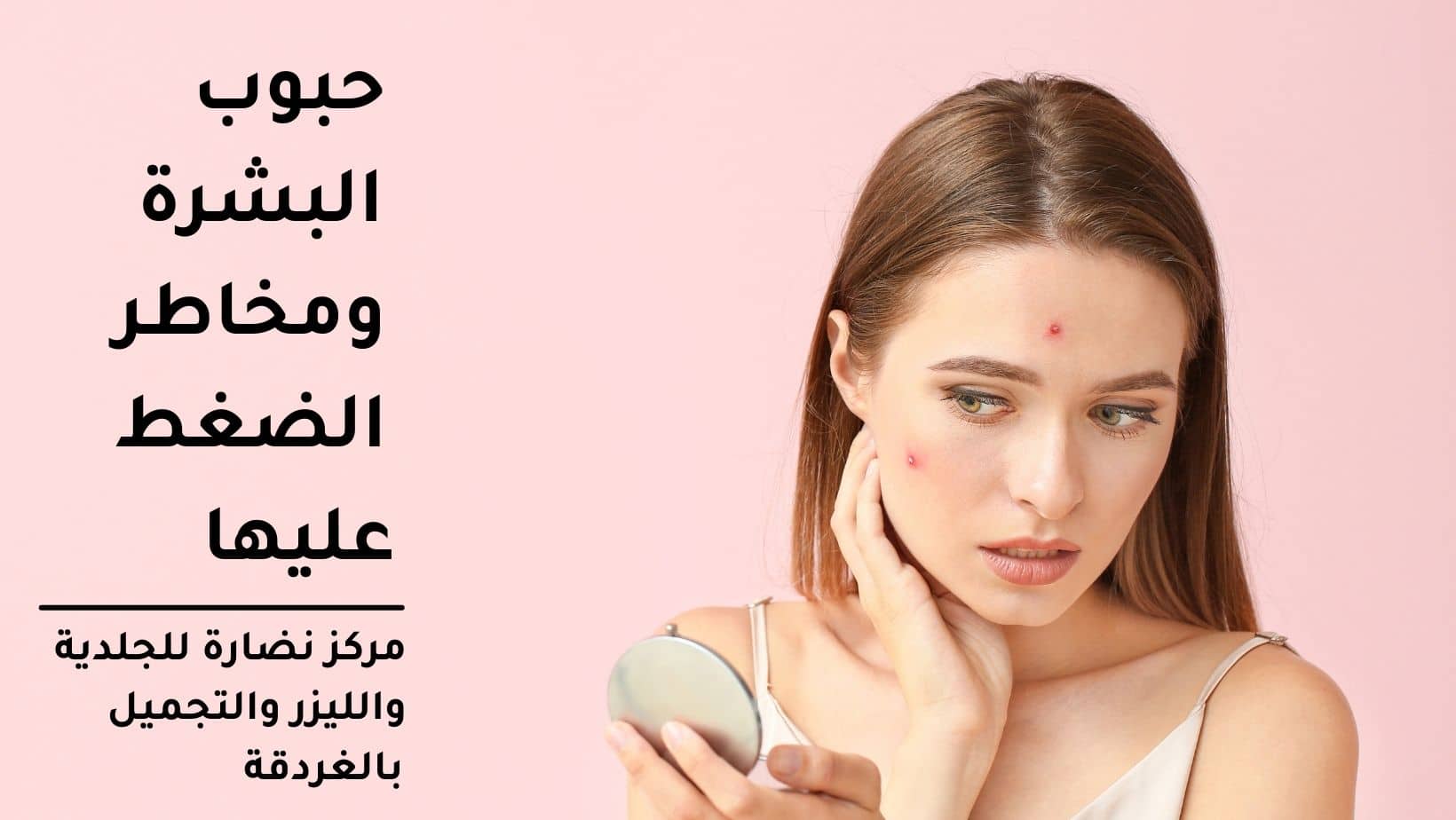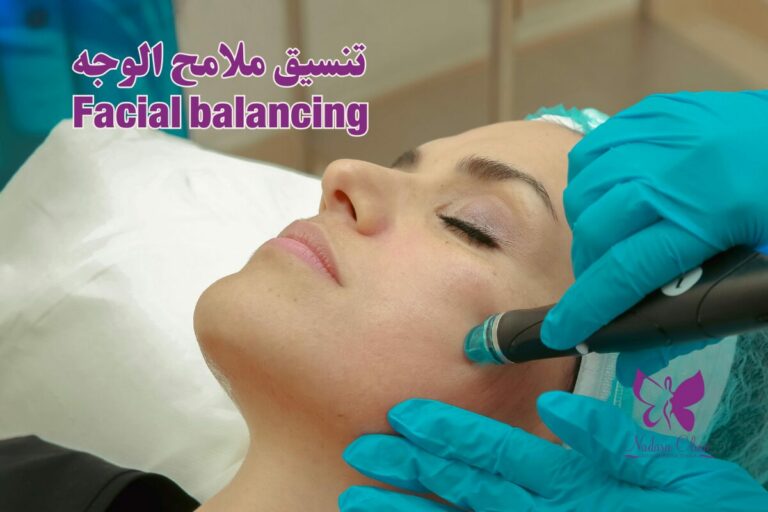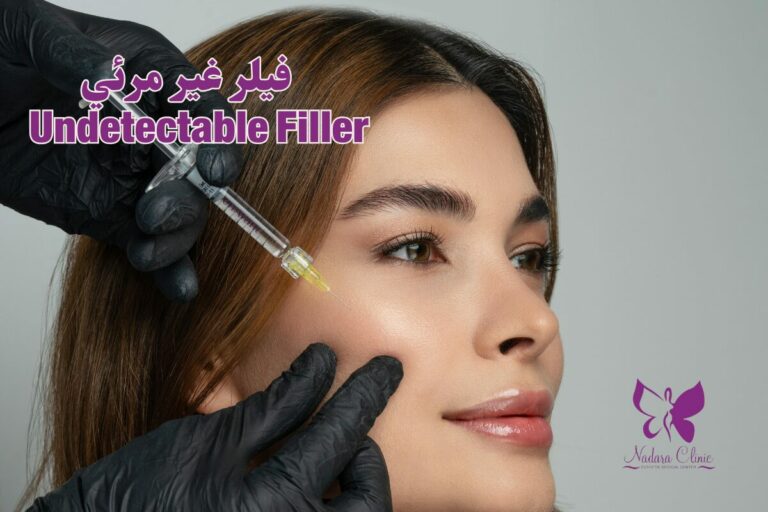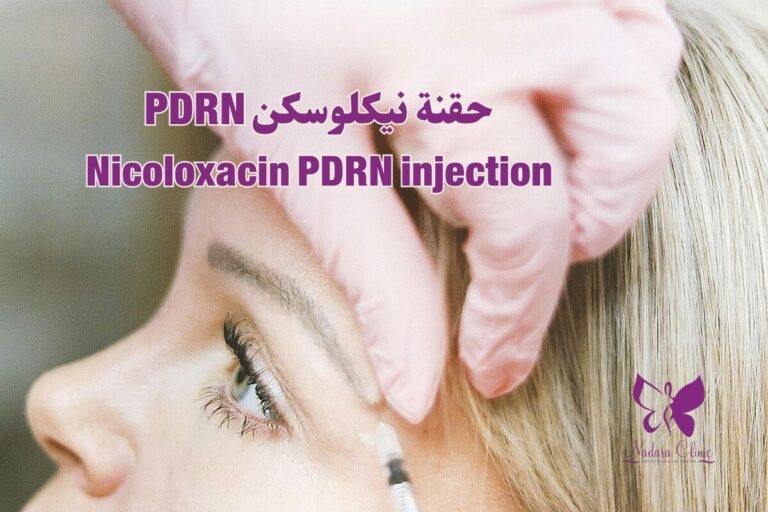Skin pimples are one of the most common types of skin problems that you may face in the different stages of your life.
These pills appear as a result of some different factors, and you can get rid of them at the Freshness Center for Dermatology, Cosmetology and Laser in Hurghada.
In this article, we will learn about the causes of the appearance of pimples, what are the risk factors for infection, as well as methods of prevention and treatment.
What are skin pills?
Acne is a common skin condition caused by clogged pores caused by hair, oil, bacteria, and dead skin cells.
These blockages cause blackheads, whiteheads, nodules, and other types of pimples.
If you suffer from these most common skin problems, don't worry about it.
It is estimated that 80% people between the ages of 11 and 30 have at least a mild form of this pill.
Most people are affected by the appearance of pimples on the skin at some point in their lives as a result of many factors.
But it mainly affects teenagers and young adults who are subject to hormonal changes, and this suffering can continue into their twenties or beyond.
The places where pimples appear on the skin
These bumps can appear on the face, forehead, chest, shoulders, or upper back.
The sebaceous glands are spread all over the body, but these are the places where they are found the most.
Types of skin pimples
These pills can take many forms and include the following:
- black heads
They are open bumps on the skin that are filled with excess oil and dead skin, and look as if dirt has been deposited in the bumps.
But the dark spots are actually caused by an irregular light reflection from the blocked follicle.
- white heads
It is defined as the bumps that still contain oil and dead skin.
- papules
They are small red or pink inflamed bumps on the skin.
- Warts
They look like whiteheads but contain pus and are surrounded by red rings, and can cause scarring if scratched or pressed.
- Folliculitis (fungal acne)
This type of acne occurs when an excess of fungi develops in the hair follicles, and it can cause itching and inflammation of the skin.
- nodules
They are hard blisters found in the deeper layers of the skin and may be painful and large in size.
- cysts
They are pus-filled blisters and may scar the skin.
You can also read : Microneedling sessions for the skin and its benefits.
What are the causes of the appearance of grain in the skin?
These pills appear significantly as a result of hormonal changes, especially Androgens which are usually active during the teenage and young years.
Sensitivity to these hormones, along with surface bacteria on the skin and acids within the sebaceous glands, can lead to breakouts.
Risk factors for skin pimples
It may get worse and lead to an increased risk of acne in the following cases:
- Hormone levels change around the time a woman's menstrual cycle.
- squeezing the grains.
- Wearing some types of clothing and head coverings for a long time, such as sports hats and helmets.
- Air pollution and some weather conditions, especially high humidity.
- Using oily or greasy skin care products (such as heavy lotions or creams).
- Working in areas where it routinely comes into contact with grease, such as working in restaurants where there are greasy food surfaces and frying oils.
- Stress, which increases the hormone cortisol Which increases the risk of skin pimples.
- Take some medicine.
- Genetic factors.
You can also read : Causes of stretch marks and ways to treat them.
Diagnosis
The dermatologist at the Freshness Center for Dermatology, Cosmetology and Laser in Hurghada can diagnose pimples on the skin during a skin examination.
Your doctor may ask if you're going through a lot of stress or have a family history of acne, which is a major risk factor.
Girls and women may be asked about the time of their period, as the appearance of pimples is associated with the approaching period of menstruation.
Sudden, severe acne outbreaks in the elderly can sometimes indicate another underlying illness that requires medical attention.
Skin pimples and the risks of stress
Dermatologists classify these pimples according to their severity into the following:
- first degree
Blackheads and whiteheads are formed at this stage, in addition to a few papules and pustules.
- Second degree (medium skin tones)
It is characterized by the presence of papules and pustules and most of them appear on the face.
- third degree
The pimples appear moderately, and it is called nodular acne, where many inflamed nodes sometimes form, and the back and chest are also affected.
- fourth degree
It is called acute nodular acne and contains many large, painful and inflamed pustules and nodules.
The dangers of squeezing the pimples are that it may lead to scarring of the skin.
It occurs when pimples penetrate the skin and damage the deeper layers, and this inflammation can cause enlarged skin pores and scarring.
You can also read : Skin tags causes and ways to remove them.
treatment
The dermatologist at Nadhara Skin, Cosmetic and Laser Center in Hurghada may suggest some medications.
It depends on the severity of the condition, your age, the type of acne you have and how effective other treatments you're using.
Sometimes using some birth control can help get rid of acne in a woman.
These medications contain a combination of estrogen (the primary female hormone) and progesterone (a natural form of steroid that helps regulate the menstrual cycle).
Various medications and treatments that have been shown to be effective in treatment include:
topical medications
- Benzoyl peroxide
Available in lotion or gel form, this medication targets the surface bacteria that often worsen acne.
- Salicylic acid
It helps remove the top layer of damaged skin, as it dissolves dead skin cells, and prevents clogging of hair follicles.
- Azelaic acid
It is a natural acid that kills microorganisms on the skin and reduces swelling.
- Retinoid (Vitamin A derivatives)
It breaks up black and white heads and helps prevent clogging of skin pores.
These medications may be appropriate for most patients, but they are not topical treatments and should be used over the entire affected area to prevent new blisters from forming.
The most common side effect of using this type of medication is skin irritation, but it often improves with moisturizers.
- Antibiotics
These include clindamycin and erythromycin which are most effective when combined with benzoyl peroxide.
- Dapzone
It is a topical gel that has antibacterial properties and can be used to treat severe acne. It can be applied twice daily to the skin.
Oral medications
Tetracyclines include tetracycline such as minocycline and doxycycline to treat moderate to severe acne.
Laser treatment of skin pimples
The dermatologist at the Dermatology Center in Hurghada primarily uses lasers for treatment, as it delivers heat to the scarring collagen under the skin.
This depends on the body's wound healing response to produce new, healthy collagen.
There are many types of lasers used in the treatment, which can be determined by the doctor according to your skin type and the nature of the scars.
You can also read : Causes and treatment of dark circles.
Chemical peel treatment
This treatment uses some special chemicals to remove the top layers of damaged skin, so new skin can grow softer and can lighten scars.
Methods of prevention
The pimples usually disappear at the beginning of puberty, but it may persist with some others.
There are some ways that can help prevent the spread of pimples on the skin, including the following:
- Wash your face daily with warm water and use a gentle facial cleanser.
- Use moisturizer daily.
- If you use beauty products every day, they should be removed before bed.
- Do not press on the pills, as this helps them spread easily.
Frequently asked questions about pimples and the dangers of squeezing them
Does eating certain foods cause the appearance of grains in the skin?
Yes, studies have linked eating certain foods to acne.
Skimmed milk, whey protein, and diets rich in sugars may contribute to this
grains.
Eating a balanced, nutritious diet with plenty of fresh fruits and vegetables, especially those rich in vitamin C and beta-carotene, helps reduce inflammation.
There is some evidence that eating fish rich in omega-3 helps prevent pimples.
Are there special concerns for women with acne of childbearing age?
If you developed acne during pregnancy, discussing treatment is important.
This is because some medications, especially isotretinoin, can cause severe birth defects.
In conclusion, skin pimples are not a serious skin problem, but you can get rid of them easily when consulting a dermatologist at the Freshness Center in Hurghada to determine the appropriate treatment.






